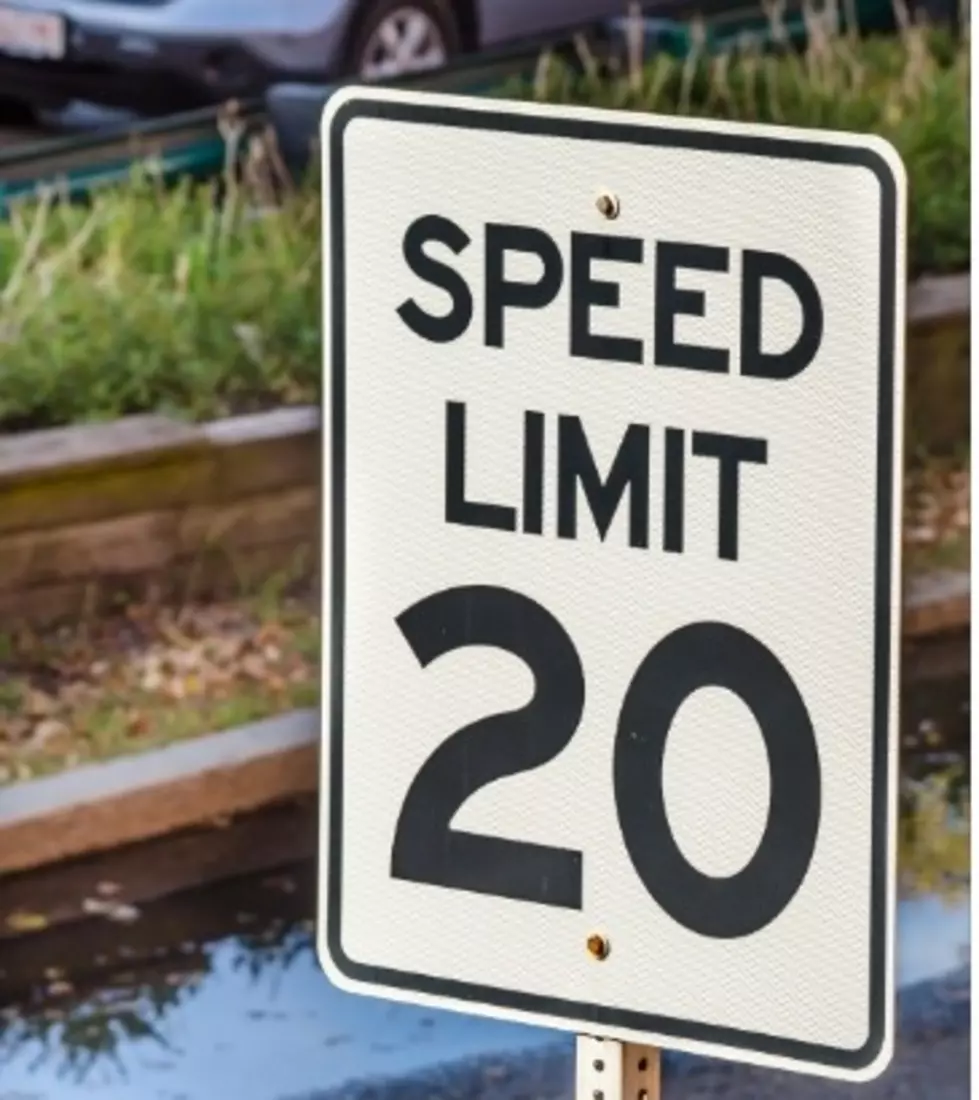![8 of the Most Deadly Blizzards And Snowstorms to Hit New York State [Videos]](http://townsquare.media/site/11/files/2020/03/GettyImages-506573558.jpg?w=980&q=75)
8 of the Most Deadly Blizzards And Snowstorms to Hit New York State [Videos]
Many parts of New York State have already gotten off to a rough start this winter. Buffalo and Western New York experienced historic snowfall just about a month ago. That Lake effect snowstorm led to the deaths of two men. Another person, a City of Buffalo employee, died during the snow removal process. When it comes to deadly and dangerous weather events, New York State has had its fair share of snowstorms, blizzards, polar vortexes, and nor'easters. Aside from the Great Blizzard of ’88, the following storms are considered "historic" by the National Oceanic and Atmospheric Administration. While the 1888 storm was not listed with the others on the NOAA webpage, it was definitely a deadly and dangerous storm that hit NY.
If you are reading this via the Newsbreak app, you may not be able to see the videos. You can click here for a version with the videos
Great Blizzard of ’88
March 11 through 14, 1888
Considered one of the worst storms to hit New York, the Great Blizzard of '88 dumped record amounts of snow on New York. The Gravesend area of Brooklyn got 52 inches, Saratoga Springs got 58 inches, Albany got 48 inches and 22 inches were recorded in New York City. This storm inspired NY to move much of its infrastructure underground. The damage was estimated at $25 million, which is about $720 million today. There were 400 fatalities caused by the storm.
Credit: HappyMario64 via Youtube
The Blizzard of 1947 "The Big Snow"
December 25 through 27, 1947
This storm was a Category 3 in the northeast. Transportation in New York City was disrupted for more than a week. There were 77 fatalities reported due to the storm. It surpassed the snowfall of the Blizzard of 1888.
Central Park reported 26.4 inches in just 24 hrs and the southeastern part of the state and northern New Jersey reported as much as 32 inches of snow. This storm was New York City’s greatest snowfall until it was finally surpassed in 2006. ~ National Oceanic and Atmospheric Administration
Credit: The Telegraph via Youtube
The Blizzard of '66
January 28 through February 1, 1966
The hardest hit areas were where “lake- effect” combined with the storm to produce record snowfall accumulations. The eastern and southern shores of Lake Ontario felt the brunt of the storm with accumulations ranging from 39 inches in Syracuse up to 100 inches next to the lake. ~ National Oceanic and Atmospheric Administration
Eight and a half feet of snow fell in some areas in New York near Syracuse. Schools closed for about a week, roads were impassable and food was scarce. The storm caused 142 fatalities.
Credit: Syracuse Nostalgia via Youtube
The Post Christmas Storm of 1969
December 25 through 29, 1969
This storm spared the eastern seaboard where heavy snow changed over to rain greatly reducing the snow accumulations. But for more inland locations, like western and northern New York, this is one of the biggest storms on record. ~ National Oceanic and Atmospheric Administration
According to Wikipedia, snowfall in Albany was 26.4 inches and in Binghamton it was 21.9 inches. The nor'easter caused about half of the New York State Thruway to close for 27 hours. There were 20 deaths in New York and New England due to the storm.
Superstorm of 1993 (Storm of the Century)
March 12 through 15, 1993
The storm affected over 100 million people across 26 states in U.S. and caused approximately $2 billion in damages. A total of 318 people died in the storm.
In Syracuse, NY, 35.4 inches fell in 24 hours setting the all time 24hour snowfall record. The storm is attributed with the largest interruption of air travel due to weather in the United States. ~ National Oceanic and Atmospheric Administration
Credit: HappyMario64 via Youtube
The Blizzard of 1996
January 6 through 9, 1996
This storm was a Cat 5 in three regions; the Southeast, the Ohio Valley, and the Northeast. It is one of the worst storms ever witnessed in the urban corridor and rivals the Superstorm of 93 for its crippling snowfall. ~ National Oceanic and Atmospheric Administration
Central Park in New York City recorded a record snowfall of 20.2 inches. The storm's snowfall forced NYC schools to close due to snow for the first time in 18 years.
Credit: Eyewitness News ABC7NY via Youtube
Valentines Day Blizzard
February 11 through 16, 2007
The Valentines Day Blizzard caused 37 casualties and caused $50 million in damages.
Maine and Pennsylvania were forced to declare states of emergency and the governor of New York called the National Guard in to assist with snow removal. In the Northeast the storm spared the urban corridor but more interior regions including the Appalachians and the Adirondacks felt the brunt of the storm. ~ National Oceanic and Atmospheric Administration
Credit: Greg Baer via Youtube
The Category 3 storm caused a total of about $500 million in damage. It impacted several areas in New York, including Oswego County, Buffalo, Rochester, Syracuse and Albany. A total of 37 people died across the U.S. and Canada due to the storm.
The Post Christmas Storm of 2010
December 24 through 28, 2010
The storm, a Category 2 in the northeast, caused six states to declare a state of emergency. Central Park in NYC recorded 20 inches of snowfall, the sixth highest on record at the time. The snow was so bad in areas of the city, the snowplows attempting to clear it got stuck. Many mass transportation passengers on buses and trains were stranded for hours. The storm caused $60 million in damages and killed 7 people.
Eastern New Jersey and New York City took the brunt of the storm where over 20 inches fell in many locations. The snow became such a problem for New York City that the roads were impassable for many days bringing the trash collection service to a grinding halt. It would take weeks after the storm for New York City's waste management team to finally restore normal trash collection. ~ National Oceanic and Atmospheric Administration
Credit: Adil Ibrahim via Youtube

LOOK: The most expensive weather and climate disasters in recent decades
Here's How New York State Will Spend Taxpayer Money In 2023
More From Hudson Valley Post









